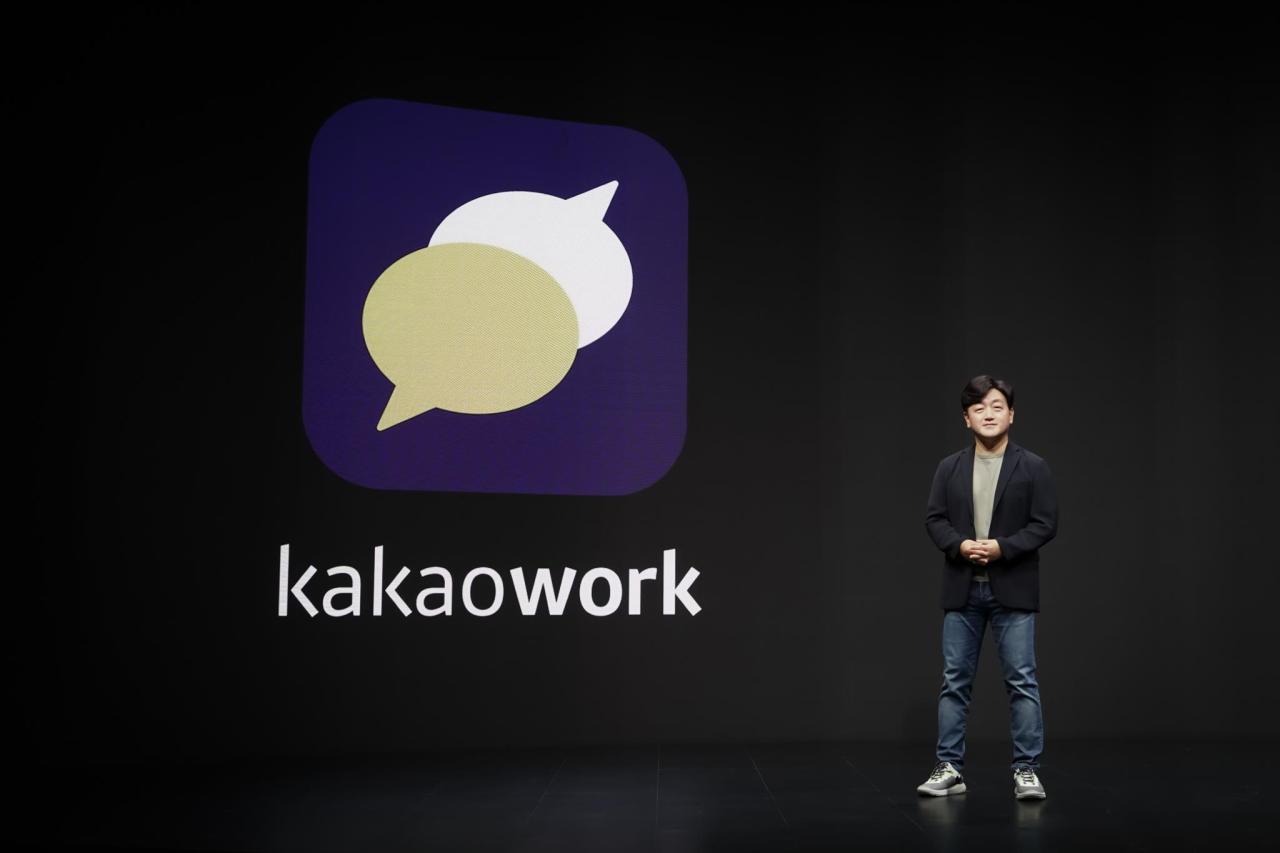 |
(Kakao) |
South Korean tech firms are joining the race for the growing remote work market, industry officials said Friday, as businesses brace for a drawn-out fight against the COVID-19 pandemic.
The country's workplaces have been reshaped this year as many companies opt to keep their workers out of offices to avoid infection risks.
A July survey by the Korea Economic Research Institute found that 75 percent of the country's largest companies have introduced flexible working systems, reflecting increasing demand for remote work tools.
Kakao Enterprise Corp., an artificial intelligence (AI) unit of the country's largest mobile messenger operator, Kakao Corp., unveiled its corporate messaging service Kakao Work earlier this week.
The platform, which offers remote work tools, such as videoconferencing and an AI assistant, has an interface similar to its parent company's KakaoTalk messenger.
Kakao Work is expected to challenge established platforms run by global tech firms, such as Microsoft Corp.'s Teams and Slack from US-based Slack Technologies Inc., as it targets KakaoTalk's massive 45.5 million local user base. South Korea has a population of 51 million in comparison.
Smaller software companies have also been in the spotlight in the race to develop remote work tools.
Startup Madras check, which has developed work collaboration software for the country's largest automaker, Hyundai Motor Co., partnered with major telecom operator KT Corp. this month to develop a remote work platform using 5G enterprise networks.
The partnership, which also includes videoconference developer SaehaComms Co. and virtual software firm Tilon Inc., aims to release the service, named KT Digital Works, by the end of this year and is also setting its sights overseas.
"Based on Digital Works' local progress, we will target the global market with our partners," Park Yoon-young, head of KT's enterprise business group, said in a statement.
Samsung SDS Co., an IT service unit of Samsung Group, is eyeing more business by opening its enterprise cloud software, previously only available for Samsung affiliates.
The company's Brity Works platform provides standard collaboration software, such as email, messaging, videoconferencing and AI chatbot services, as well as robotic process automation, in which an AI handles simple repetitive tasks.
Analysts expect IT companies, such as Samsung SDS, to profit from the remote work trend, with no end in sight to the pandemic.
"The experience of the pandemic has made investment in enterprise IT services, such as remote work solutions, a compulsory factor," Kim So-hye, an analyst at Hanwha Investment & Securities Co., said.
The global collaboration tool market is expected to reach $13.6 billion in 2023, compared with $11 billion in 2018, according to a report from the Samjong KPMG Economic Research Institute. (Yonhap)




![[Herald Interview] 'Trump will use tariffs as first line of defense for American manufacturing'](http://res.heraldm.com/phpwas/restmb_idxmake.php?idx=644&simg=/content/image/2024/11/26/20241126050017_0.jpg)

![[Health and care] Getting cancer young: Why cancer isn’t just an older person’s battle](http://res.heraldm.com/phpwas/restmb_idxmake.php?idx=644&simg=/content/image/2024/11/26/20241126050043_0.jpg)

